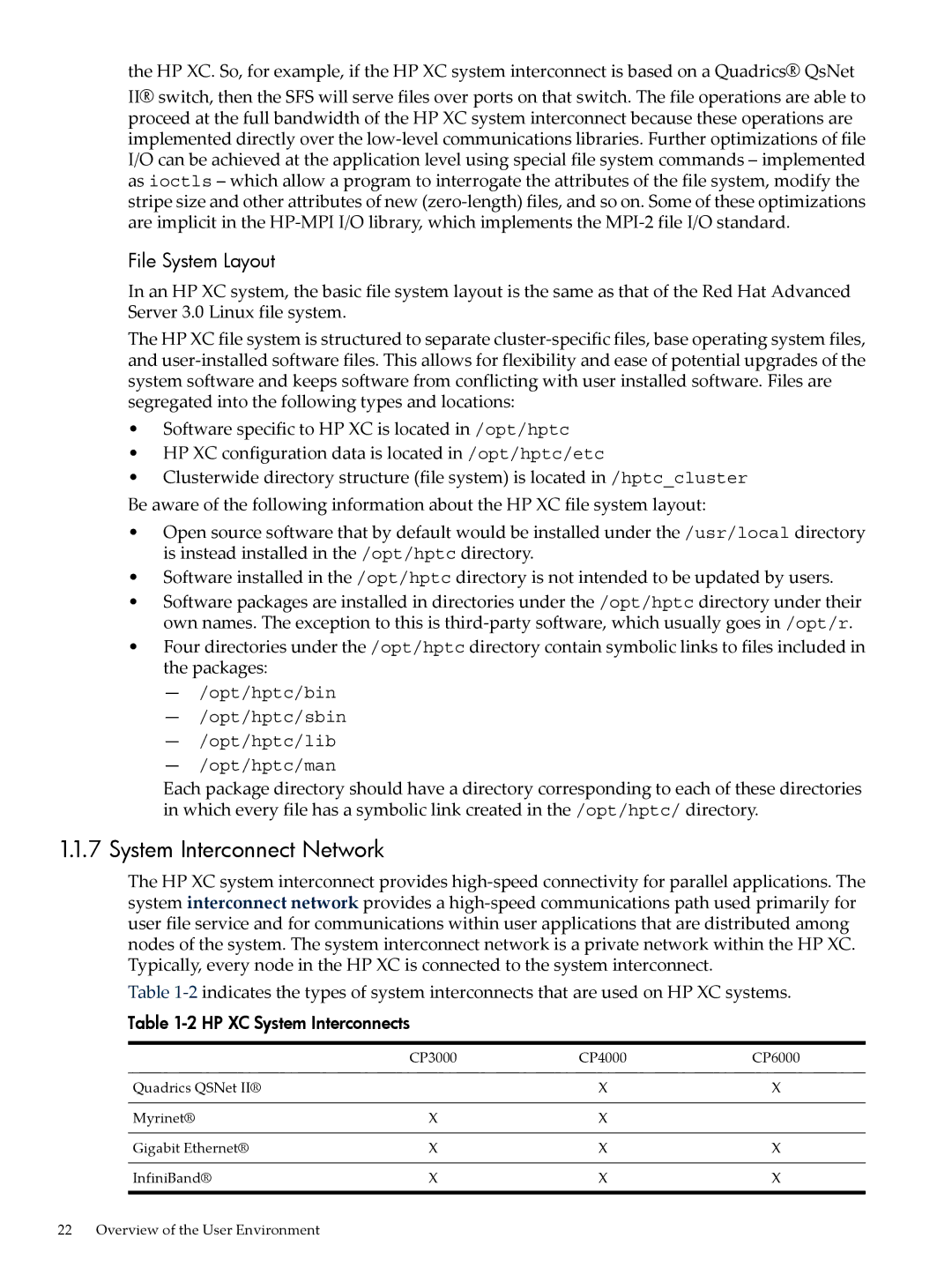
the HP XC. So, for example, if the HP XC system interconnect is based on a Quadrics® QsNet
II® switch, then the SFS will serve files over ports on that switch. The file operations are able to proceed at the full bandwidth of the HP XC system interconnect because these operations are implemented directly over the
File System Layout
In an HP XC system, the basic file system layout is the same as that of the Red Hat Advanced Server 3.0 Linux file system.
The HP XC file system is structured to separate
•Software specific to HP XC is located in /opt/hptc
•HP XC configuration data is located in /opt/hptc/etc
•Clusterwide directory structure (file system) is located in /hptc_cluster
Be aware of the following information about the HP XC file system layout:
•Open source software that by default would be installed under the /usr/local directory is instead installed in the /opt/hptc directory.
•Software installed in the /opt/hptc directory is not intended to be updated by users.
•Software packages are installed in directories under the /opt/hptc directory under their own names. The exception to this is
•Four directories under the /opt/hptc directory contain symbolic links to files included in the packages:
—/opt/hptc/bin
—/opt/hptc/sbin
—/opt/hptc/lib
—/opt/hptc/man
Each package directory should have a directory corresponding to each of these directories in which every file has a symbolic link created in the /opt/hptc/ directory.
1.1.7 System Interconnect Network
The HP XC system interconnect provides
Table
Table 1-2 HP XC System Interconnects
| CP3000 | CP4000 | CP6000 |
Quadrics QSNet II® |
| X | X |
Myrinet® | X | X |
|
Gigabit Ethernet® | X | X | X |
InfiniBand® | X | X | X |
22 Overview of the User Environment
